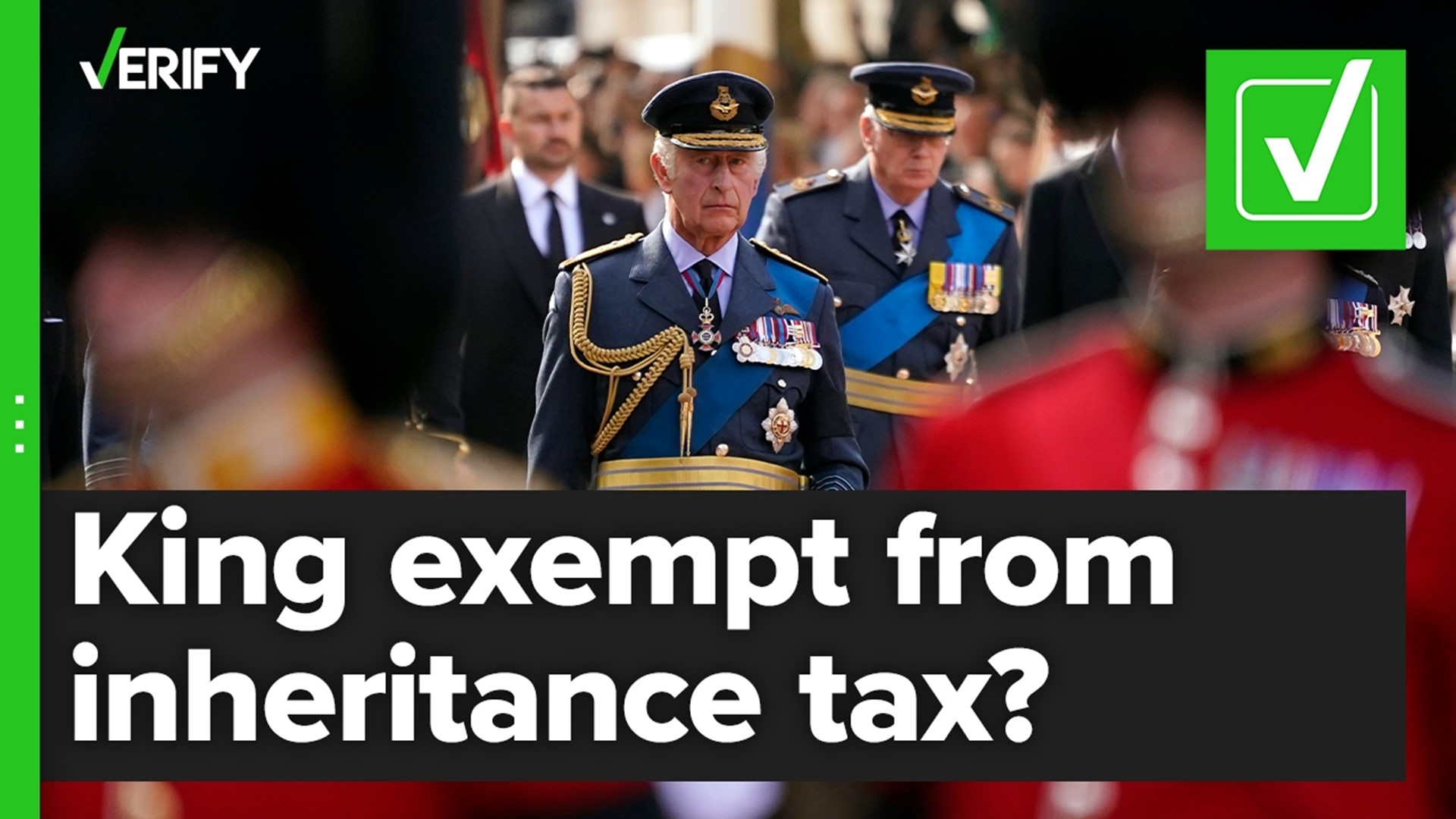It has been estimated that Queen Elizabeth II personally owned about $500 million in real estate, investments, jewelry and other assets. King Charles III not only takes over the throne from his mother, but he also takes over the monarch’s vast fortune.
After she died on Sept. 8 at her Scottish residence Balmoral Castle, some people said King Charles III wouldn’t have to pay inheritance taxes on her wealth, even though others in the United Kingdom are required to do so.
More from VERIFY: Yes, Charles automatically became King of England after death of Queen Elizabeth II
THE QUESTION
Is King Charles III exempt from paying inheritance tax?
THE SOURCES
THE ANSWER
Yes, King Charles III is exempt from paying inheritance tax.
WHAT WE FOUND
Normally, when a person dies in the United Kingdom and their survivors inherit their assets, they pay an inheritance tax of 40% on wealth above a certain threshold. According to the British government, inheritance tax is a tax on the estate – the property, money and possessions – of the person who died.
The only time someone in the U.K. wouldn’t have to pay this tax is if:
- the value of the estate is below the £325,000 threshold
- If the deceased left everything above the £325,000 threshold to their spouse, civil partner, a charity or a community amateur sports club
(Note: As of Sept. 15, one Euro equals one United States dollar)
More from VERIFY: Yes, King Charles III's likeness will start appearing on money in the UK
Because the queen’s estate is worth much more than that, the king would have had to pay the 40% tax on it, but that’s not the case because of a deal the queen made in 1993.
According to news reports from the time, the monarch agreed to pay income tax for the first time since the 1930s after the government criticized the crown for receiving special tax treatment because of their tax-exempt status.
Reports said it came as a shock to Parliament when then-Prime Minister John Major announced the queen had agreed to pay taxes. According to a 1993 transcript from Parliament, Major said the queen agreed to voluntarily pay the nation’s highest tier of income tax on her private income and capital gains tax annually. In 1993 that was 40%; in 2021, it rose to 45%.
But, because of the “unique circumstances of an hereditary monarchy, special arrangements are needed for inheritance tax,” Major said in 1993. Therefore, the monarchy would be exempt from paying inheritance taxes.
While the royal family does not pay inheritance tax per the queen’s agreement, others have. In 2002, when Queen Elizabeth II’s mother, known as the “Queen Mother,” passed away, members of her staff were required to pay inheritance tax on items left to them in her will.

